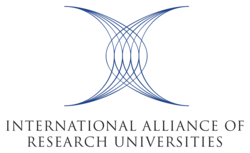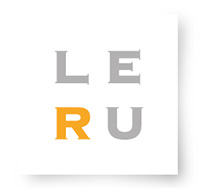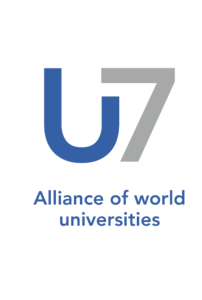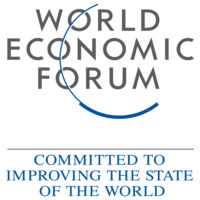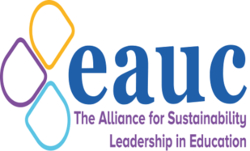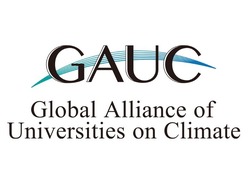The International Association of Research Universities (IARU)
IARU comprises 11 research-intensive universities spread throughout the globe, from the USA and South Africa, to Australia and Japan. IARU exists to facilitate joint working on key issues for the university sector, to support research that addresses pressing global challenges, and to enable international student exchange.
The alliance is particularly active in the areas of sustainability, the management of university estates, and research in ageing, longevity and health.
Leadership of IARU rotates between members every two years and Cambridge was delighted to serve as Chair and Secretariat of the Alliance between 2021 and 2023.
Cambridge’s ongoing involvement with IARU is coordinated by the Strategic Partnerships Office and the current Cambridge IARU senior officer is Dr Karen Kennedy.
Also, the Cambridge University's Environmental Sustainability Team is involved with the IARU Sustainable Campus Initiative (SCI).
More information can be found on the IARU website.
The League of European Research Universities (LERU)
Cambridge is a member of LERU, an organisation of 24 leading European universities pushing the frontiers of innovative research.
LERU advocates, at both a national and European level, for the importance of basic research and articulates the vital role universities play in society. It has become an important contributor to European policy discussions on higher education and research. Central to LERU’s work is the publication of policy papers and statements, as well as the organisation of events and meetings. LERU provides a valuable forum for members to share expertise, experience, news, and good practice.
Representatives from LERU’s varied policy and thematic subject groups meet in person (and more recently online) throughout the year, and university leaders convene annually at the rectors’ assembly. The current Cambridge senior officer for LERU is Renata Schaeffer.
On the LERU website more information about the network can be found, and you can also sign up to their mailing list.
U7+ Alliance of world universities
The U7+ Alliance of World Universities is the first coalition of university presidents aimed at defining concrete actions universities can take to collectively address global challenges in coordination with government leaders in G7 countries and beyond. Alliance members meet annually to establish a common agenda and identify key areas for coordinated action.
Together, U7+ university presidents take stock of their universities’ unique civic and social responsibilities and pledge concrete action on behalf of their institutions to address the world’s most pressing challenges at local, regional, and global levels. More than 100 presidents and top leaders of universities from over 15 countries are a part of the U7+ Alliance.
More information can be found on the U7+ website and on the U7+ Secretariat website, hosted by Northwestern University.
The Association of Commonwealth Universities (ACU)
The Association of Commonwealth Universities is a global network of universities with a shared commitment to building a better world through international collaboration in higher education.
As the world's first and oldest international university network, ACU has been bringing universities together from across the Commonwealth for more than 100 years. The ACU has over 500 member institutions in over 50 countries across the Commonwealth.
More information can be found on the ACU website.
Global University Leaders Forum (GULF)
The Global University Leaders Forum (GULF) was established in 2006 and it is a group of Presidents from universities across the world.
The GULF is an invitation only community of global, forward-thinking, and solution-oriented university leaders who are committed to supporting the Forum's mission of improving the state of the world. The leaders convene to exchange ideas and collaborate with Forum centres, communities, and initiatives on matters of common interest, including those relating to higher education, research, and societal impact.
Cambridge’s ongoing involvement with GULF is coordinated by the Strategic Partnerships Office. For further information, please contact Renata Schaeffer or Marina Avena Maia.
More information can be found on the World Economic Forum website.
Alliance for Sustainability Leadership in Education (EAUC)
The EAUC is a non-profit, member-based charity run by members for members. The membership of the EAUC comprises higher and further educational institutions, and spans over 200 colleges, universities, funding councils, and company members and seeks to exemplify best practice in order to manifest a shared sustainable future.
As the alliance for sustainability leadership in education, the EAUC positions itself as a member-led organisation that disseminates information, facilitates networking, and actively stimulates the sector through the implementation of national initiatives.
The EAUC administers the Green Gown Awards, which recognise the exceptional sustainability initiatives undertaken by universities and colleges; it also delivers the Sustainability Leadership Scorecard, a comprehensive, planning, and self-assessment tool specifically for colleges and universities to improve their social responsibility and environmental performance through a whole institution approach. The Sustainability Exchange is just one among numerous projects delivered by the EAUC. It offers the first sustainability information portal, created with the support of top sector organisations.
Cambridge’s ongoing involvement with EAUC is coordinated by Cambridge Zero and Cambridge University's Environmental Sustainability Team. More information can be found on the EAUC website.
UK Universities Climate Network (UUCN)
The UUCN was founded in 2019 as the COP26 Universities Network with a goal to ensure the academic sector played its role in delivering a successful UN COP26 Climate Change Conference in Glasgow in November 2021. It carried out an extensive work programme in the lead up to the conference to create momentum, engage public and business audiences, and provide support to the UK Government.
It became the UK Universities Climate Network (UUCN) in March 2022, and it is continuing the work to contribute to the creation of a resilient, net zero world. The Secretariat is based at the Grantham Institute for Climate Change and Environment at Imperial College London.
The UUCN is a growing group of over 85 universities and research centres working together to promote a zero carbon, resilient future. The Network enables collaboration within the UK academic sector to advance climate action nationally and internationally. The UUCN disseminates climate change research and analysis, conduct evidence-based public engagement, and share evidence for climate action with policymakers, including the UK Government.
Cambridge’s ongoing involvement with EAUC is coordinated by Cambridge Zero. More information can be found on the UUCN website.
Global Alliance of Universities on Climate (GAUC)
The Global Alliance of Universities on Climate (GAUC) was formed in January 2019, in Davos, Switzerland. During the annual meeting of the World Economic Forum, eight universities jointly issued a statement representing a commitment to establish the Alliance. The founding members include the Australian National University, University of California, Berkeley, the University of Cambridge, Imperial College London, London School of Economics and Political Science, Massachusetts Institute of Technology, the University of Tokyo and Tsinghua University.
Four additional members were later invited to join GAUC, including Stellenbosch University, Federal University of Rio de Janeiro, Indian Institute of Science, and Sciences Po. Columbia University, the University of Oxford and Yale University joined the alliance at the beginning of 2020. These 15 universities form GAUC.
GAUC's mission is to advance climate change solutions through research, education, and public outreach, and to partner with industry, non-profit and government organizations to promote rapid implementation from local to global scales. GAUC will pursue this mission by promoting exchange and cooperation among member universities and providing leadership of global higher education efforts addressing climate change.
Cambridge’s ongoing involvement with EAUC is coordinated by Cambridge Zero. More information can be found on the GAUC website.

